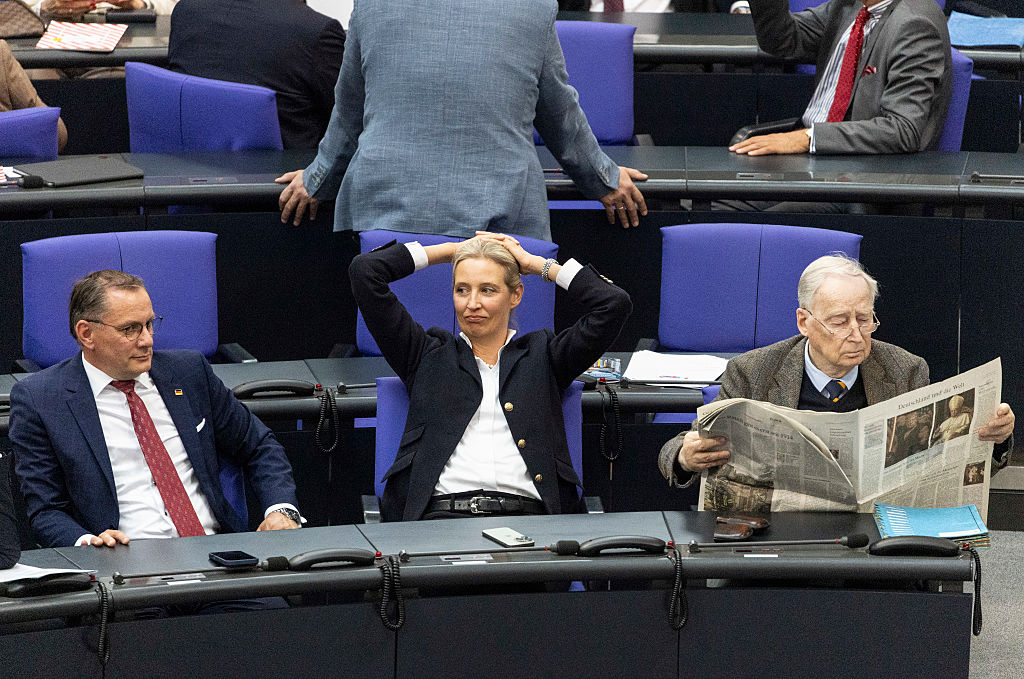A controversial top-secret German intelligence report on the right-wing Alternative for Germany party (AfD) that could lead to a total ban on the insurgent political group has been leaked in full online.
Several German media outlets have obtained copies of a report which the country’s constitutional protection agency (BfV) – part of the Ministry of the Interior – had compiled on AfD. Both the newspaper Junge Freiheit and news website Nius published the entire document online on May 13.
The goal, wrote Nius journalist Björn Harms, was to enable a public debate on the document’s contents.
The report had served as the foundation for BfV’s May 2 decision to categorise the entire AfD as “definitely right-wing extremist”. The judgement by the internal security agency could serve as the basis for a complete ban of AfD – which received 21 per cent of the vote in the recent General Election.
The BfV had previously tried to keep the 1,108-page report confidential with not even AfD itself been given a copy. Only a few passages had been made publicly available.
The German Interior Ministry – to which the BfV reports – had argued that the report contained sensitive sources and intelligence information and that the disclosure could jeopardise the agency’s work.
Mathias Brodkorb, a former SPD state minister refuted that charge. After reading the report, he wrote in magazine Cicero: “It was never about protecting the BfV from espionage, but of protecting it from a critical public. … There are no relevant intelligence sources to protect. The constitution protection agency has practically no intelligence findings on AfD. It relies almost entirely on publicly available sources.”
The report is in large part a compilation of quotes from public statements by AfD politicians, including AfD leaders Alice Weidel and Tino Chrupalla, along with state-level and local representatives. The quotes range from harmless statements to “clearly unconstitutional statements”, wrote Brodkorb. However, the BfV would declare them all without differentiation as anti-constitutional. “This is not only unconvincing, it is patently false,” Brodkorb concluded.
In one example, the BfV document included a statement from Alice Weidel in which she said that calling a politician a “moron” should fall under the freedom of expression.
Weidel referred to the widely publicised case of a German pensioner who had his house raided by police after sharing a meme online in which then Vice Chancellor Robert Habeck (Greens Party) was called a “professional moron”. Weidel called the raid “an element of intimidation”. This statement was subsequently also included in the BfV report as an indication of AfD’s anti-constitutionality.
Elsewhere in the media, commentators have hit out at the BfV’s work. Publicist Roland Tichy said the agency was “spreading highly anti-democratic views”. Conservative columnist Birgit Kelle wrote on X: “Nothing of what was collected is confidential. It could have been collected by two student helpers using screenshots from the internet. …The whole thing is a farce.”





